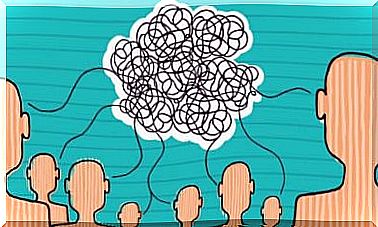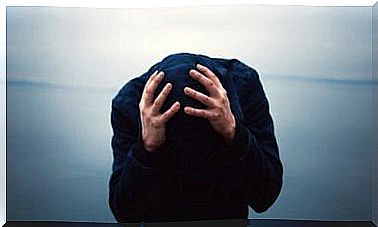The Illusion Of Control: Therapy Must Continue

There are times in our lives when we ask ourselves if it would be a good idea to visit a psychologist. We have doubts and fears, and we ask the people around us for advice. We may even be looking for alternative medicines and pseudoscientific therapies for peace of mind. We visit an expert to find the exit. We have a feeling that we control our lives and things, but do we really control them?
Then after we have talked about our goals with the therapist, we start with energy and intention. The mountain, which at first seemed too big, now seems within reach. We feel like we are getting better and starting to tell ourselves that we are making progress, and we believe in this more and more. Next come to mind the following thoughts “I can do this”, “nothing bad has happened yet”, “good times bring bad times”. When is it time to stop therapy?
The illusion of control
The illusion of control is familiar to many psychologists, and people are aware of it, even if they don’t say it. In the midst of all the methods of thought and reasoning, we develop ways to deceive ourselves.
Management is one of the best ideas. This means a sense of control over things that don’t really depend on us. A good example of this would be gamblers, for example. They believe they use strategies for uncontrolled games (such as roulette).

During therapy, especially when it comes to certain diseases, the idea of control is risky. In therapy sessions, this illusion of control is one of the emerging problems. It is logical that when we are free from our own shackles of negative thoughts, we begin to doubt whether we need help anymore.
Thoughts like “I can do better now” are positive, but this should be compared to reality, and perspective should never be lost. This is one of the goals that therapists must strive for. Of all the possible reasons why a patient could skip therapy, the illusion of control is most detrimental.
The importance of follow-up in therapy
As we begin to achieve positive results in therapy, we take the next steps, and even set our own goals forward, and make decisions about how we feel. This is something really positive.
But stopping harmful thoughts and bad habits doesn’t mean we “control” them. It is at this point that we need to pay attention to therapy, and we must not abandon what has helped us. If we have solved the initial problems, it would be best to develop a prevention plan that will allow us to maintain the results achieved by the therapy. Otherwise, we may not develop strategies for healing.

What happens if we have a relative or someone close to you at this point? It is ideal to reinforce the maintenance of the new habits and strategies that have helped him. Let us beware of self-deception. The therapist will schedule sessions first weekly, then monthly, quarterly, and finally semi-annually, before the final closing of the sessions.
The monitoring process continues. It may be that we are beginning to doubt our well-being, or that our loved ones are beginning to doubt. It is risky if we just say we are doing well, when in fact we have to face that illusion of control and look closer at the path we have taken, and not the goal that we have not yet achieved. Let us keep in mind that our goal is the result of small steps taken along the way.









